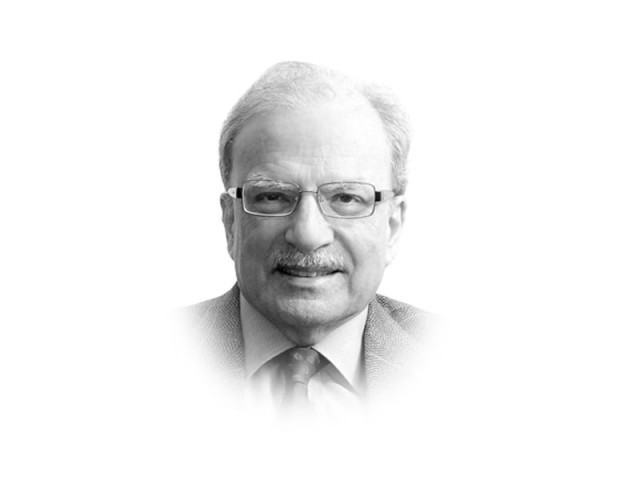Coping with compounded crises
Pakistan, a country that has seen so many crises in the past should have learnt to deal with them.

The writer is a former caretaker finance minister and served as vice-president at the World Bank
There were several crises in Pakistan’s early years that resulted from the attitude of the first generation of Indian leaders towards their sister state. These led to the stoppage of electricity to Lahore, at that time the new country’s largest city. Tinkering with the flow of water into the canals that had their ‘head-works’ in India created a sense of panic in Pakistan. At one point, Prime Minister Liaquat Ali Khan threatened war with India if the flow of water was disrupted. The state of uncertainty produced was partially resolved by the Indus Water Treaty of 1960. But issues remain and will need to be addressed as Pakistan begins to take steps to deal with the faster-than-normal melting of the Himalayan glaciers. Perhaps, the most significant crisis provoked by India was the trade embargo imposed on Pakistan. This was in retaliation to Pakistan’s refusal to follow India and devalue its currency with respect to the American dollar. The embargo profoundly changed Pakistan’s economic history. It led to Pakistan’s rapid industrialisation, as well as the switch in its exports to new channels. Before the embargo, Pakistan’s exports to, and imports from, India made up the bulk of its trade. Now India is a minor trading partner.
Natural events also caused serious crises in Pakistan. More recently, the earthquake of 2005 and the floods of 2011 and 2012 did severe damage to the economy. The floods were probably the result of climate change. Experts believe that Pakistan will be one of the countries that is more severely affected by global warming, dependent as it is on water brought in by the Indus system of rivers. There is an urgent need to build storage capacity but that will involve reaching an understanding with India. This is one example that indicates how different sources of crises reinforce and compound their consequences.
Policy failures — and these include both the adoption of wrong policies as well as not responding to the challenges the country faced — also led to crises. Pakistan’s history has a number of examples of these. For instance, Prime Minister Zulfikar Ali Bhutto’s ill-advised nationalisation of large industries and financial and commercial houses interrupted the momentum the economy had picked up during President Ayub Khan’s rule. Pakistan is still struggling with the task of defining appropriate roles in the economy for the state and private enterprise. The second example is that of policy neglect. The poor understanding of the relationship between economic growth and energy demand during President Pervez Musharraf’s rule resulted in the less-than-needed investment in power generation. The country agreed to the World Bank’s wrong advice to separate power generation from thermal and hydel resources. Thermal generation was left in the hands of the private sector while the development of hydropower was to be the responsibility of the state. No thought was given to the response that would be needed if the private sector, for whatever reasons, failed to come forward with the needed investments. Severe energy shortages were the result, which reduced economic activity in the country.
Domestic terrorism of various kinds is the result of another kind of failure. Violence of various kinds, to which the country has been subjected in recent years, is the consequence of the country’s failure to move forward with the development of a viable political order. Broadly speaking, it can be traced to three reasons. There are groups that are using violence as a mode of political expression since political institutions are not well developed to cater to the demands and aspirations of different groups of people. This is the main reason why the Muhajir, the Pashtun and the Sindhi communities are fighting it out on Karachi’s streets rather that settling their differences in the political space. Sectarian violence is the result of the inability of the state to send a clear message to its perpetrators that religious differences will not be allowed to be settled on the street. Extremism has become a force since the political establishment has not been able to define what was behind the ‘idea of Pakistan’. Was the idea to create an Islamic state or to create a state for the Muslims of the South Asian subcontinent?
Pakistan, a country that has seen so many crises in the past should have learnt to deal with them. This did not happen because of the failure of the policymakers to understand what produced these crises before formulating responses to them. This is what the current administration in Pakistan needs to do.
Published in The Express Tribune, November 25th, 2013.
Like Opinion & Editorial on Facebook, follow @ETOpEd on Twitter to receive all updates on all our daily pieces.














COMMENTS
Comments are moderated and generally will be posted if they are on-topic and not abusive.
For more information, please see our Comments FAQ